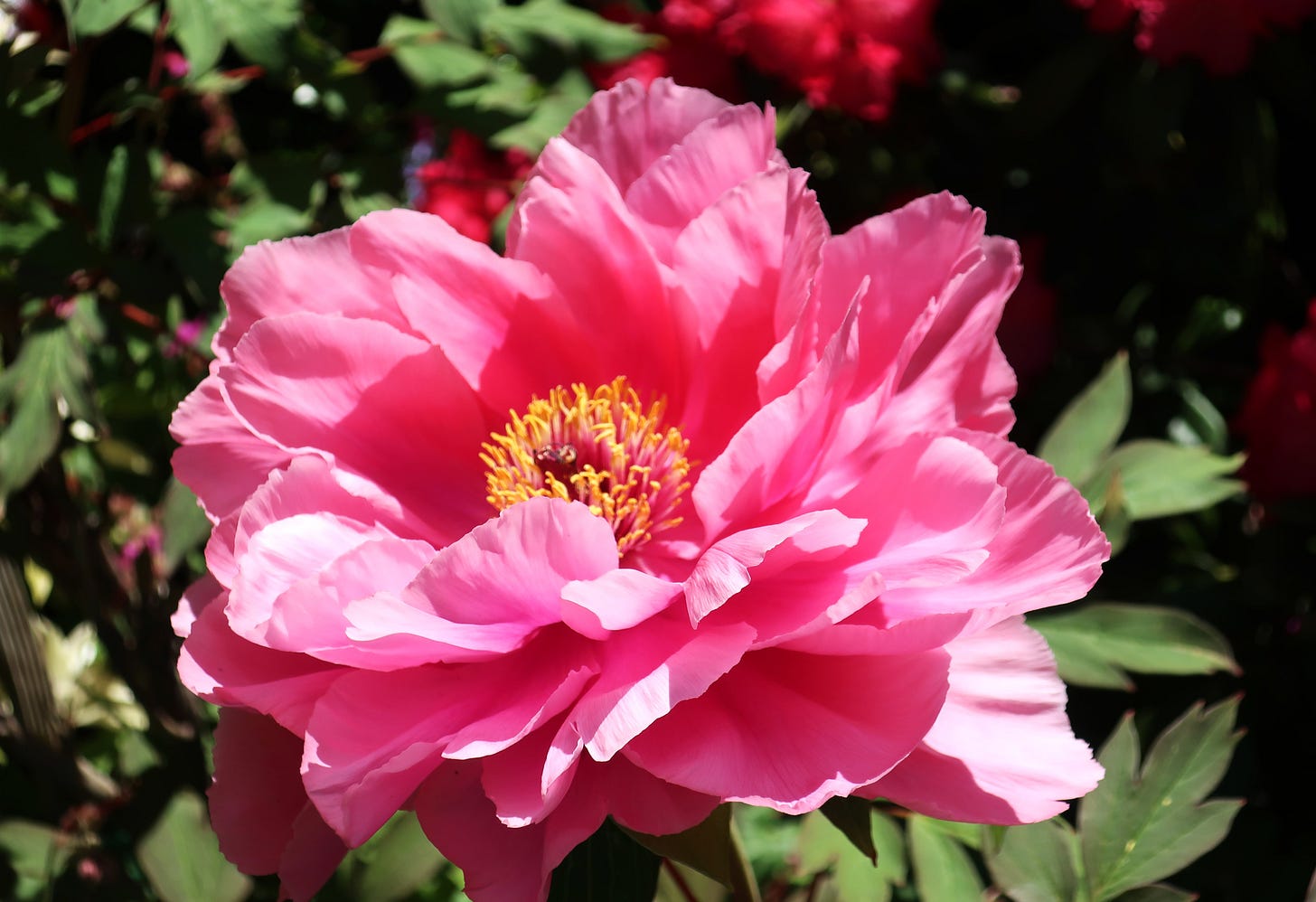Footnotes to a Conversation, May 27, 2024
“Instead of pursuing endless growth, it is time to pursue wellbeing for all people as part of a thriving world … When we turn away from growth as the goal, we can focus directly on asking what it would take to deliver social and ecological wellbeing, through an economy that is regenerative and distributive by design.” [The Guardian]
Hometown Adventures
So many of us, me included, feel we must travel to have an adventure or to slow down and relax. And yet do we? What if we took the time to hit pause in our daily lives?
“Slowing down and appreciating the small details of our world is one of the most remarkable discoveries and enhancements one can make to their life … [A]dventure is more of a mindset and many of us might be surprised how radical our perspective on life might shift if we embraced this notion of wandering infused with mindfulness.”
“All one needs is the imagination and willingness to keep pushing themselves into unknown and yet-to-be-experienced realms of life. Adventures need not be elaborate or exotic, distant or remote, life-threatening, or foolhardy. Neither are adventures necessarily something solely entitled to the extreme risk-takers of the world or the well-to-do elites. They can simply be in the backyard, your hometown, the next county over, a neighboring state, or virtually anywhere that changes our perception of something.” [Those Who Wander]
In This Time, In This Place
I’ve just finished reading two books that left me thinking about the interconnections and inter-dependencies of humans and their surroundings.
Seed to Dust by Marc Hamer is a meditative look at a man and the garden he has looked after for many, many years. It’s a reflection on the passage of time, seasonal and annual changes, and about loosening our ties so we can live in the moment.
Life Between the Tides by Adam Nicolson describes the land and the inhabitants of a small stretch of coast in western Scotland. He looks at how land, creatures, and people respond to geology and the weather as well as how we share resources. Near the end of the book, he questions, “Is human history here a branch of natural history? Is our own story merely another dimension of its ecology? … The sea is not made of water, nor a medium in which to swim but a world to come alongside, to be-with in ways that go beyond the predatory.”
Where Do I Belong?
I was born in Tanzania, have lived most of my life in Canada, have strong family ties to England, and ties of the heart to France. I sometimes envied people I knew in Saskatchewan whose families had farmed the land for generations. They had strong ties to the land, to geography, and to history that could never be mine. Yes, I’m a proud Canadian, but there are additional relationships that deserve to be acknowledged and that I believe are just as valuable as long-standing ties to one particular place.
Nowhere Exactly: On Identity and Belonging by M.G. Vassanji speaks directly to my situation. Of Gujerati Indian descent, he was born in Kenya, raised in Tanzania, and is now a Canadian citizen. He says, “My background straddles cultures, religions, and nationalities; therefore when stuck with a label (or put inside a box as I sometimes imagine) I tend to squirm.” His perspective on what it means to be a Canadian and on Canada’s identity as a multicultural country are well worth considering. Several chapters of the book also look at religion in India. Coming from a small religious group containing elements of both Hindu and Muslim beliefs and stories, he is saddened to see India becoming increasingly arbitrary: you are either a Hindu or a Muslim, there are no other options.
“The Gujarait Khoja tradition has been perceived as a mongrel, a half-formed, impure faith that given time and coaching will eventually drift to authentic Islam or Hinduism. It defies easy description, violates census classifications, and does not have the clarity that scholars of the neat and canonical wish to study. And yet it is authentic in itself, having preserved itself and evolved over the centuries, during which it has defined a historical community. In India similar communities have always existed and they are the targets of religious purifiers to this day. We often forget that the canonical, mainstream ‘pure’ forms of any religion as we know them are themselves artificial constructs, they did not arise fully formed.”
Footnotes to a Conversation is a weekly Monday feature covering an assortment of topics that I’ve come across in the preceding week – books, art, travel, food, and whatever else strikes my fancy. I also post occasional articles on other dates, including frequent book reviews and travel tales.
If you share my love of nature, check out EcoFriendly West, an online publication encouraging environmental initiatives in Western Canada, and Nature Companion, a free nature app for Canada’s four western provinces.




